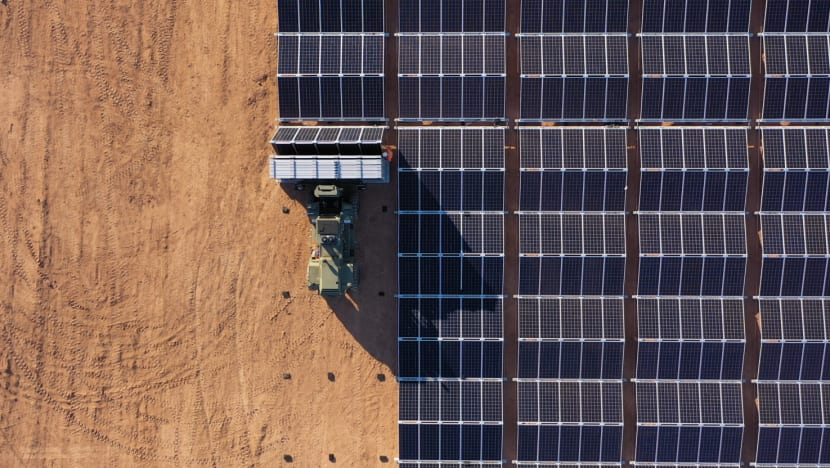What we know about Sun Cable and its collapsed Australia-Singapore solar energy project
Sun Cable's flagship project planned to harness solar energy in Australia and transmit it to Singapore for use.

SINGAPORE: Renewable energy firm Sun Cable said on Wednesday (Jan 12) that it will enter voluntary administration after the company's backers failed to reach an agreement on funding structure and what direction it should take.
Voluntary administration refers to a process where a company's directors appoint independent administrators to step in to find a path forward for the business, which is usually facing financial difficulties.
Here's what we know about Sun Cable:
What does the company do?
Sun Cable is the company behind a A$30 billion (S$27.5 billion) project known as the Australia-Asia PowerLink, which had planned to channel solar energy from Australia to the Asia-Pacific region.
The company said it would capture solar energy in Australia's Northern Territory and transmit it to be used in Darwin, which is also in the Northern Territory, as well as in Singapore.
It intended to begin construction on the 4,200km undersea cable in 2024 and be fully operational in 2029. Sun Cable claimed it could carry 3.2GW of electricity and supply up to 15 per cent of Singapore's total electricity needs.
The company, which was founded in 2018, has offices in Singapore, Jakarta and multiple cities in Australia.
Why did it enter administration?
In Sun Cable's case, it did receive funding proposals, but “consensus on the future direction and funding structure of the company could not be achieved”, according to a press release.
“The voluntary administration process will now unlock a path forward for the company to access additional capital for continued development of its (marquee) project,” the statement said.
“The administrators intend to work with the company’s management team and key stakeholders to determine appropriate next steps for the business.
“This will likely involve a process to seek expressions of interest for either a recapitalisation or sale of business.”
Who are its investors?
Major investors include private investment company Grok Ventures and Australia's Squadron Energy, but Sun Cable has also raised money from other private investors.
In March 2022, Sun Cable said it raised A$210 million. However, not all the funds were made available to the company because it had not met some milestones, Reuters reported.
Billionaire and climate activist Mike Cannon-Brookes, who was principal investor at Grok Ventures, took over as chairman of Sun Cable last year. Grok Ventures has invested in a range of businesses including technology and clean energy firms, as well as graphic design platform Canva.
Squadron Energy is owned by Tattarang, a holding company for the family of Australian billionaire Andrew Forrest. Mr Forrest is chairman of iron ore giant Fortescue Metals.
What does this mean for Sun Cable's flagship project?
Squadron Energy may put together a funding deal for the administrators, Reuters reported, citing a person familiar with the company’s thinking.
Squadron Energy chairman John Hartman told Reuters it believes in Sun Cable's vision, but that "the manner in which the project is delivered needs urgent change".
"Exceptional governance practices and world-class project delivery expertise, as well as pursuing bankable technologies, will be required to make the project a reality," he said.
Australia's Energy Minister Chris Bowen told reporters: "I remain very upbeat and excited about Sun Cable's future."
He said he spoke to "very senior people" in the company.
What is Singapore's involvement?
Second Minister for Trade and Industry Tan See Leng in January 2021 said there were ongoing discussions on Sun Cable's proposal to supply solar power to Singapore. Dr Tan said the Energy Market Authority could not share more details due to "commercial sensitivities".
Sun Cable asked Surbana Jurong member company SMEC to provide engineering consulting services for solar generation systems and grid connection interfaces in Australia, CNA reported in October 2021.
Surbana Jurong said it was facilitating the "early works" of the project, including "mapping out the regulatory approvals required to tie Sun Cable’s solution into the Singapore grid as well as providing technical services for receiving infrastructure such as voltage source converters, substations and subsea cables for landing the power in Singapore".
What will happen to Singapore staff?
Sun Cable’s subsidiary in Singapore is not in administration. Staff will remain employed. However, since the parent entity in Australia is in administration, Singapore employees may be affected in future.

















